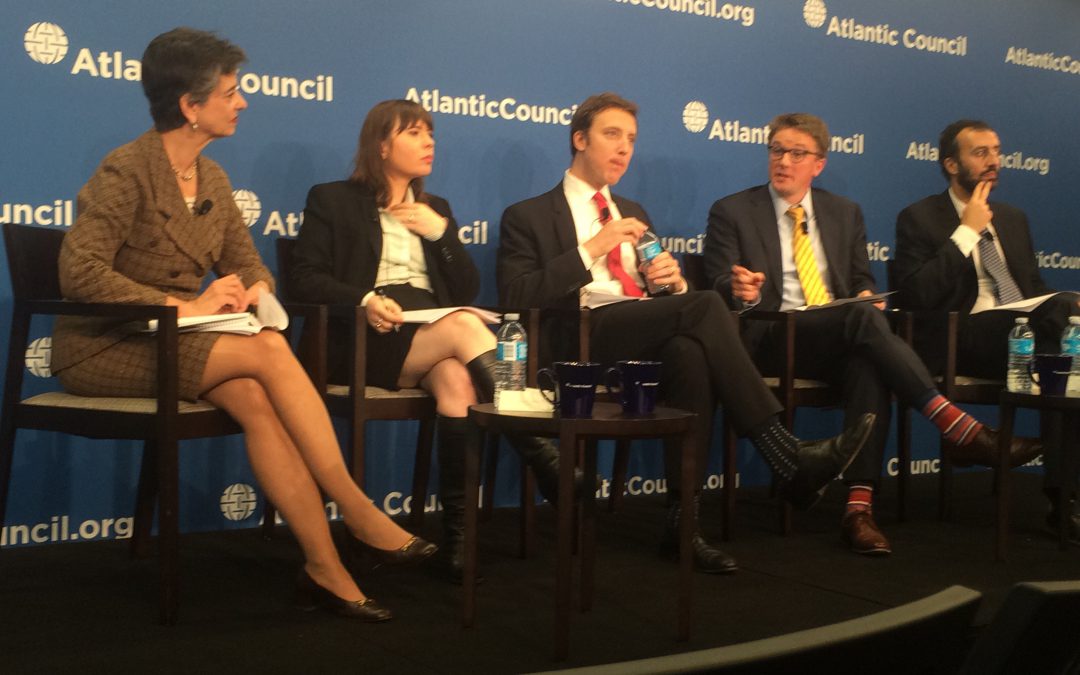WASHINGTON — Donald Trump’s rhetoric on the campaign trail about Russia and Russian President Vladimir Putin has understandably created speculation about what U.S.-Russia relations will look like under President-elect Trump.
As tensions with Russia increased this year, the Trump administration’s policies, starting in 2017, will be crucial in framing the relationship down the road, experts say.
During the campaign, Trump talked somewhat positively about Vladimir Putin, calling him a stronger leader than President Barack Obama. After the Nov. 8 election, Putin congratulated Trump, and both men agreed on the need to improve relations.
However, some experts say friendship between Putin and Trump could actually hurt Putin’s ability to maintain unity in Russia.
“If Trump and Putin were to have some kind of reset of which I am skeptical of, if Russia and America really become friends, well who is Putin going to blame for Russia’s problems,” said Anna Borshchevskaya, a fellow at the Washington Institute for Near East Policy, a Washington-based foreign policy think tank.
Although Trump has flip-flopped on a number of issues, he has always been consistent on Russia, she said at an Atlantic Council panel Tuesday.
William Pomeranz, an expert on Russia at the Wilson center, a D.C.-based international affairs think tank, said a Trump-Putin friendship could make a key aspect of the Russian leader’s foreign policy very difficult.
“He would lose, in that sense, one of his most important sources of Russian unity, and that is anti-Americanism … Anti-Americanism has been a key element of Putin’s foreign policy,” Pomeranz said.
In recent years, U.S.-Russia tensions have escalated. In October, the Obama administration accused Russia of interfering in the U.S. election through hacking.
Pomeranz said developing a specific response plan to cyber attacks should be a priority for the next administration.
“The United States in general has to come up with a policy as to how it wants to respond to these cyber attacks,” Pomeranz said in a telephone interview.
Pomeranz said U.S. leaders need to articulate how and under what specific conditions the nation would employ cyber responses. Under the Obama administration, Pomeranz said, the policy has not been very clear.
In Eastern Europe, Ukraine continues to be an area of dispute. The United States imposed sanctions on Russia on March 6, 2014 after Russia invaded and annexed Crimea, which had been part Ukraine.
In early July on the campaign trail, Trump had said he would consider lifting the sanctions on Russia.
Pomeranz said removing sanctions would make the situation in Ukraine far more unstable.
“Since we have decided to not engage militarily, the only option we have left is the continuation of sanctions, and sanctions represent the one source of leverage we have to bring Russia to the table,” Pomeranz said.
Russia’s recent international aggression can be attributed to its declining economy, according to Borshchevskaya.
“Historically, the Kremlin tends to get very aggressive internationally when Russian economy gets weak,” she said.
As the economy continues to deteriorate in the coming years, Borshchevskaya said the aggression will continue.
Furthermore, if Trump holds true to his campaign promise of getting rid of the Iran Nuclear Deal, tensions with Russia – a signatory to the deal — could increase.
“I think there is a lot the Trump administration can do to really undermine the agreement, but I think the other parties including the Russians would not be happy about that,” Alireza Nader, a policy analyst at the RAND corporation, a global policy think tank, said at a Atlantic Council Panel Tuesday.
Jeffrey Mankoff, an expert at the Center for Strategic and International Studies, said Russia, along with many of the U.S’s European allies, would be upset with Trump undermining the Iran nuclear deal.
“Russia played a role in getting the Iran deal through. It is largely in Russia’s interest,” Mankoff said in a telephone interview. “It is not a big fan of Iran getting nuclear weapons.”
In addition, the conflict in Syria has remained an area of contention. Putin has backed Syrian President Bashar al-Assad and Russian planes have carried out airstrikes against rebel-held eastern Aleppo. Obama, who has called on Assad to step down, started a program to supply weapons to moderate rebel forces fighting the Assad regime.
In early November, Trump suggested he would end aid to the rebels and find common interests with the Russians in order to fight ISIS, the terrorist group waging war in Syria and Iraq.
But Mankoff said he doesn’t know if the U.S. and Russia would be able to actively cooperate in Syria. Still, he said, the United States could possibly find a way to lower tensions.
“In Syria, I don’t think U.S. and Russian interests are that far apart,” Mankoff said.
Both countries have interests in destroying ISIS. But efforts by Secretary of State John Kerry to maintain a ceasefire have fallen through.
Thus far, Russia has dismissed U.S. calls to stop the bombing, and has criticized the U.S. on its arming of rebels.


